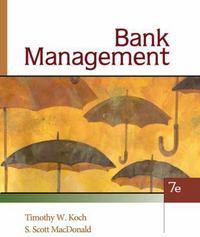Question
How might the response of a central bank to an external inflation shock depend upon the way that the home population forms its inflationary expectations?
How might the response of a central bank to an external inflation shock depend upon the way that the home population forms its inflationary expectations?
There are quite a few ways that a student might answer it. Consider an international oil price spike, for instance. If the home population has backward looking expectations of inflation, then the central bank, by allowing the oil price increase to pass through into inflation, will be condemning itself to a long period of higher inflationary expectations on the part of the general public and thus higher realised inflation (since the PC shows that actual inflation is an increasing function of expected inflation). To avoid this, the central bank may hike interest rates in response to an oil spike. This will cause a domestic recession, but it will keep inflation from rising. If, instead, the home population expects inflation to be at the level of the central bank's target, and the expectations are well-grounded at that level, then the central bank may instead decide to do nothing in response to the oil price spike and allow inflation to rise temporarily. It won't face the same incentive to artificially induce a recession in order to keep short term inflation low.
Please explain the bold part!
Please explain what is the high realises inflation ?
what is the PC shows that actual inflation is an increasing function of expected inflation?
may hike interest rates in response to an oil spike. How?
Step by Step Solution
There are 3 Steps involved in it
Step: 1

Get Instant Access to Expert-Tailored Solutions
See step-by-step solutions with expert insights and AI powered tools for academic success
Step: 2

Step: 3

Ace Your Homework with AI
Get the answers you need in no time with our AI-driven, step-by-step assistance
Get Started


